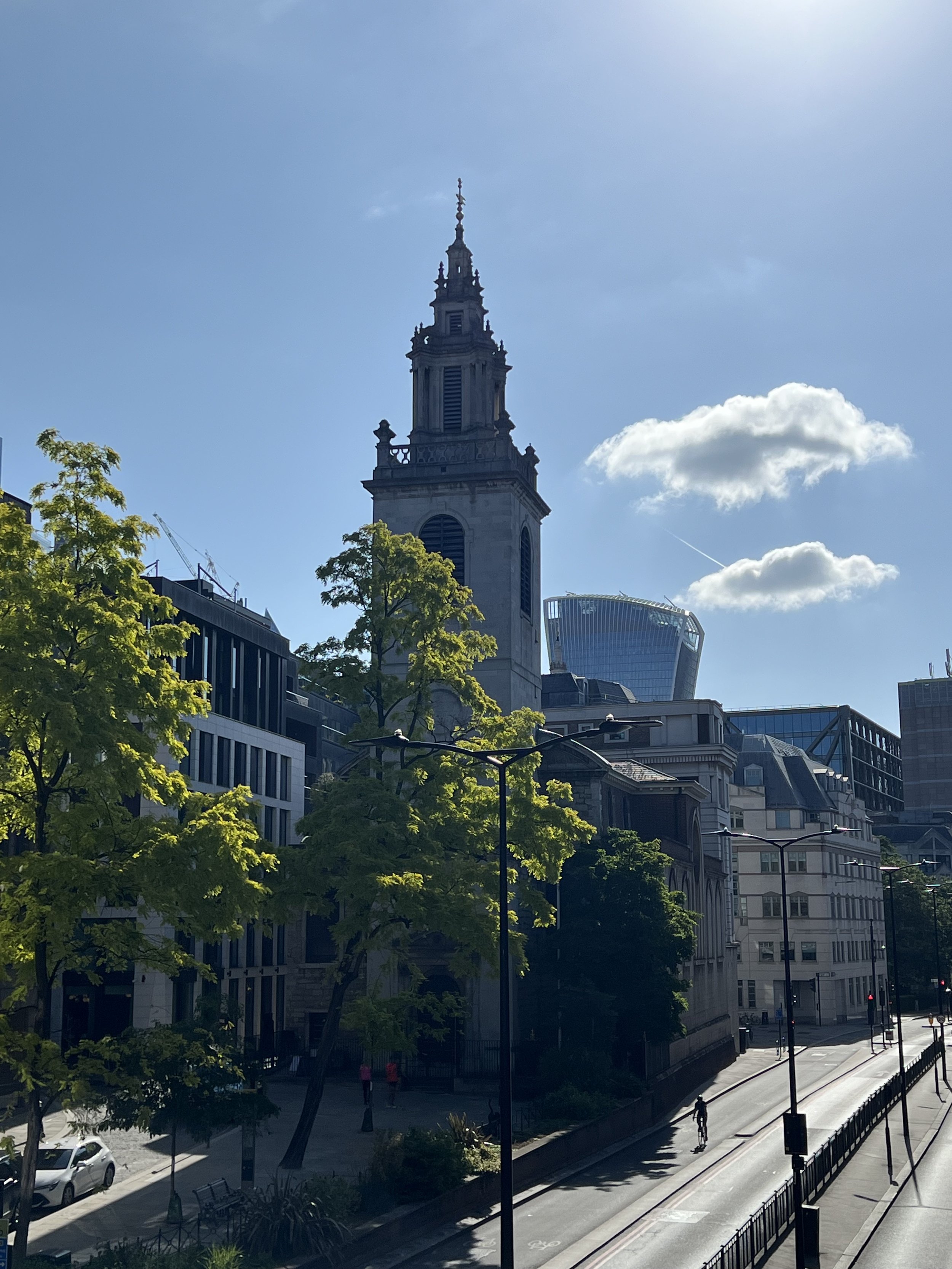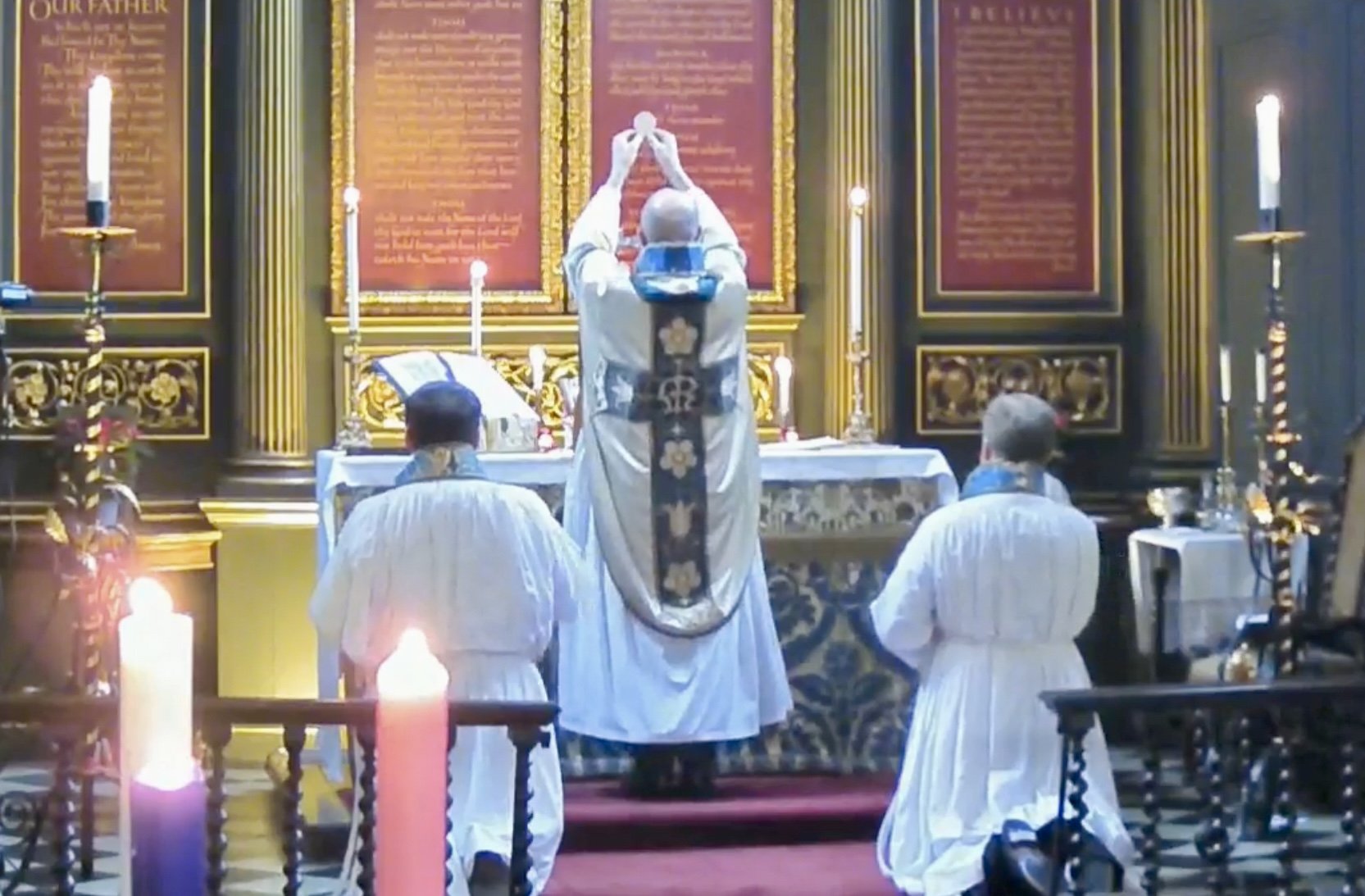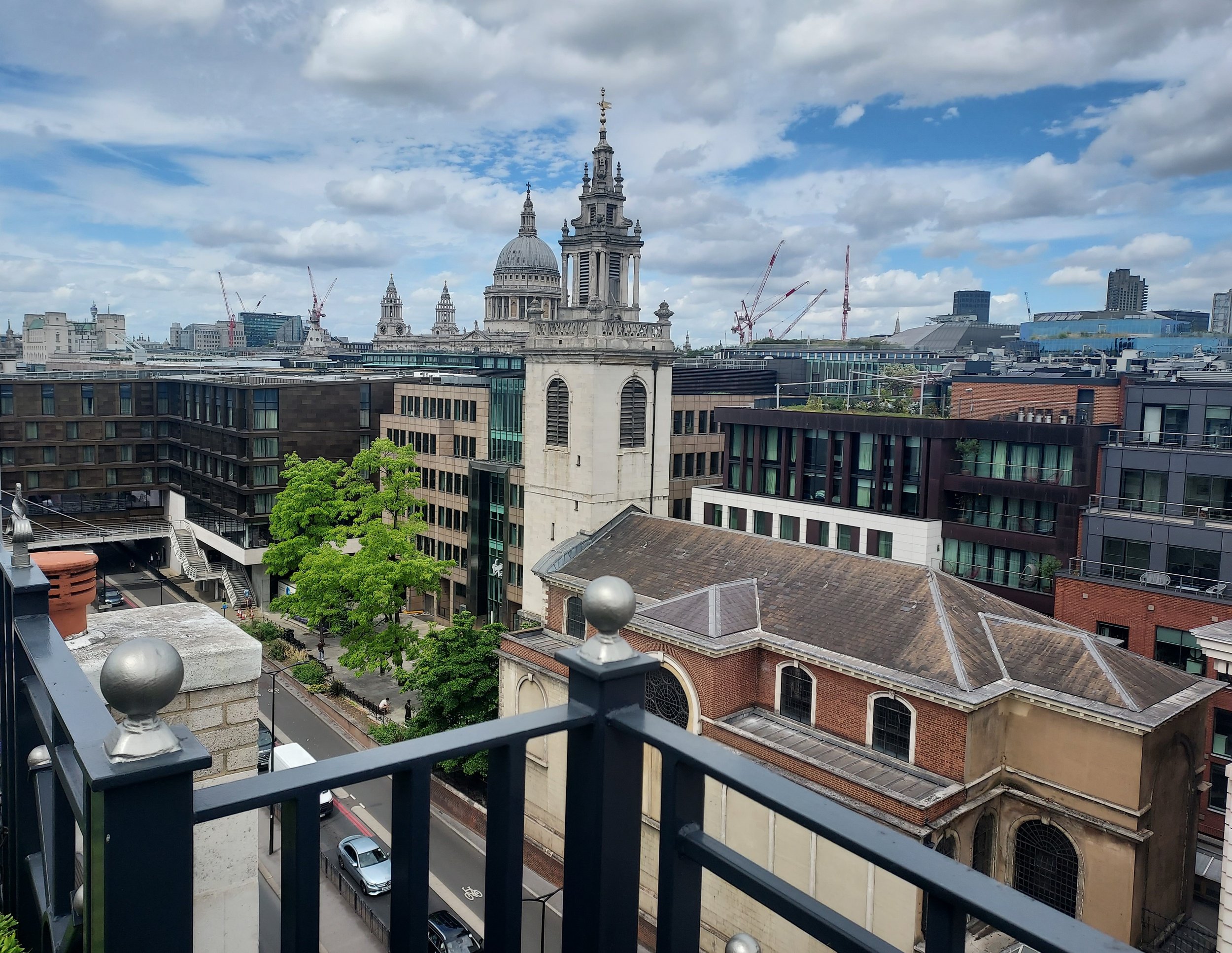
Our Faith
St James Garlickhythe is an Anglican Parish Church serving a busy parish on the bank of the Thames in the City of London.
Renowned for services that adhere to the traditional beauty of Book of Common Prayer, we believe in, and practice, the Christian Faith as the Church has traditionally received it. As such, we are part of the family of churches under the oversight of the Bishop of Fulham.
Whether you work nearby or are visiting us in person or online, you are most welcome. Pause for a while and soak up the beauty of this historic building; a holy place of prayer, refreshment, and peace. All pilgrims and visitors are assured of a very warm reception.
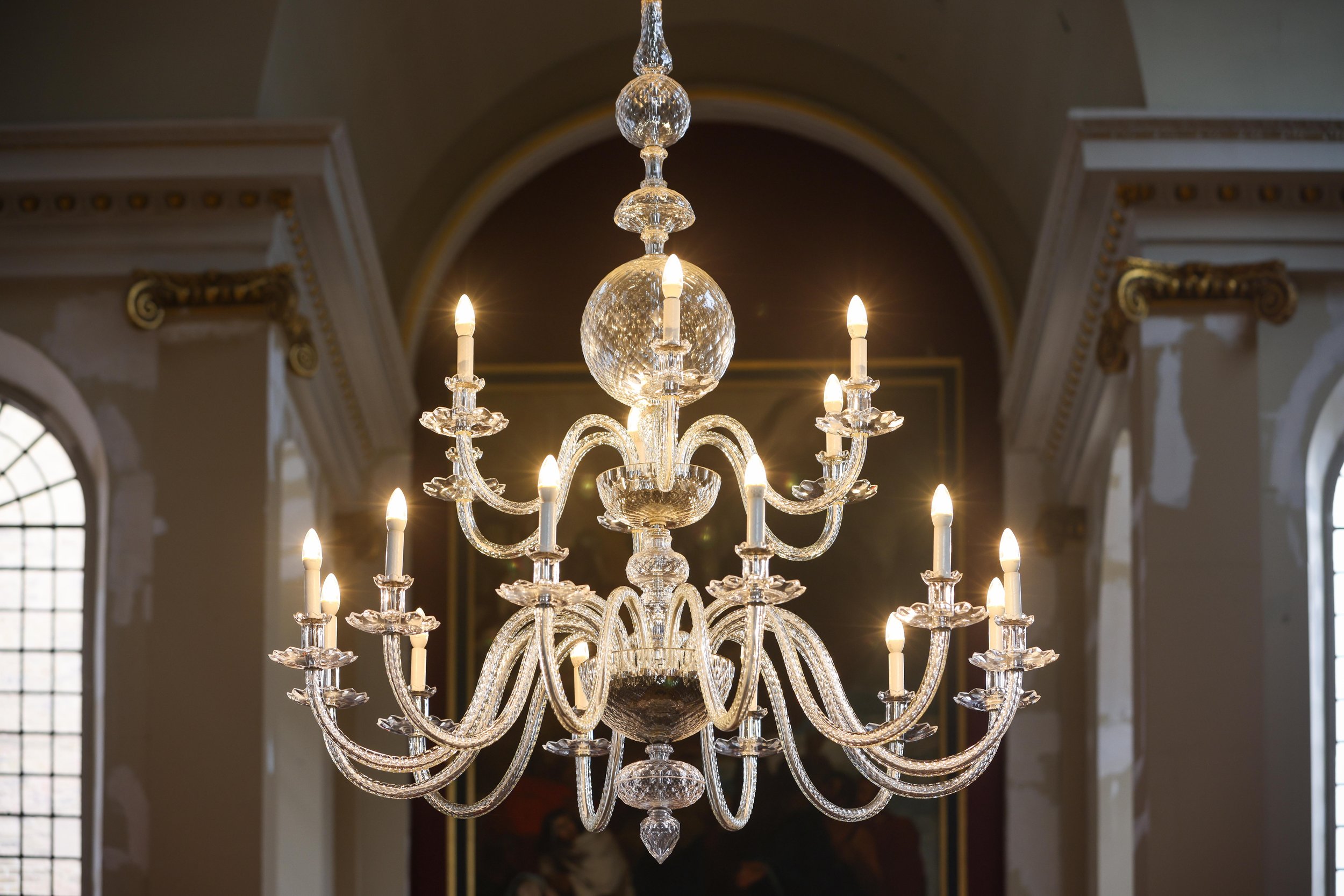
What we believe
At St James we believe that Jesus Christ is the Way, the Truth, and the Life.
Jesus is both truly God and truly human and died on the cross and rose to life. Because God loves us so much, he wills us to be like Him and so He became like us, even suffering for us. Without Jesus, there is no Christian Faith or salvation.
Christians believe in one God, who is also the Trinity; meaning that He is one God in Three Persons: God the Father - through whom all was made; God the Son - Jesus Christ; and God the Holy Spirit - who communicates God to us.
Fundamental to the Christian faith is the belief that Jesus Christ is both truly God and truly human, and that He died on the cross and rose to life. Because God loves us so much, he wanted us to be like Him and so He became like us, even suffering with and for us. Without Jesus, there can be no Christian Faith and He is the means to our salvation, that is our eternal relationship with God. The early Church formulated this faith in a series what we now call Creeds, from the Latin first word Credo which means I believe. This is the Apostles Creed:
I believe in God the Father Almighty, maker of heaven and Earth, and in his Son, Jesus Christ Our Lord, who was conceived by the Holy Ghost, born of the Virgin Mary, suffered under Pontius Pilate, was crucified dead, and buried. He descended into hell; the third day he rose again from the dead; He ascended into Heaven and sitteth on the right hand of God the Father Almighty. From thence He shall come to judge the quick and the dead. I believe in the Holy Ghost, the Holy Catholic Church; the communion of the Saints, the forgiveness of sins, the resurrection of the body and the life everlasting. Amen.
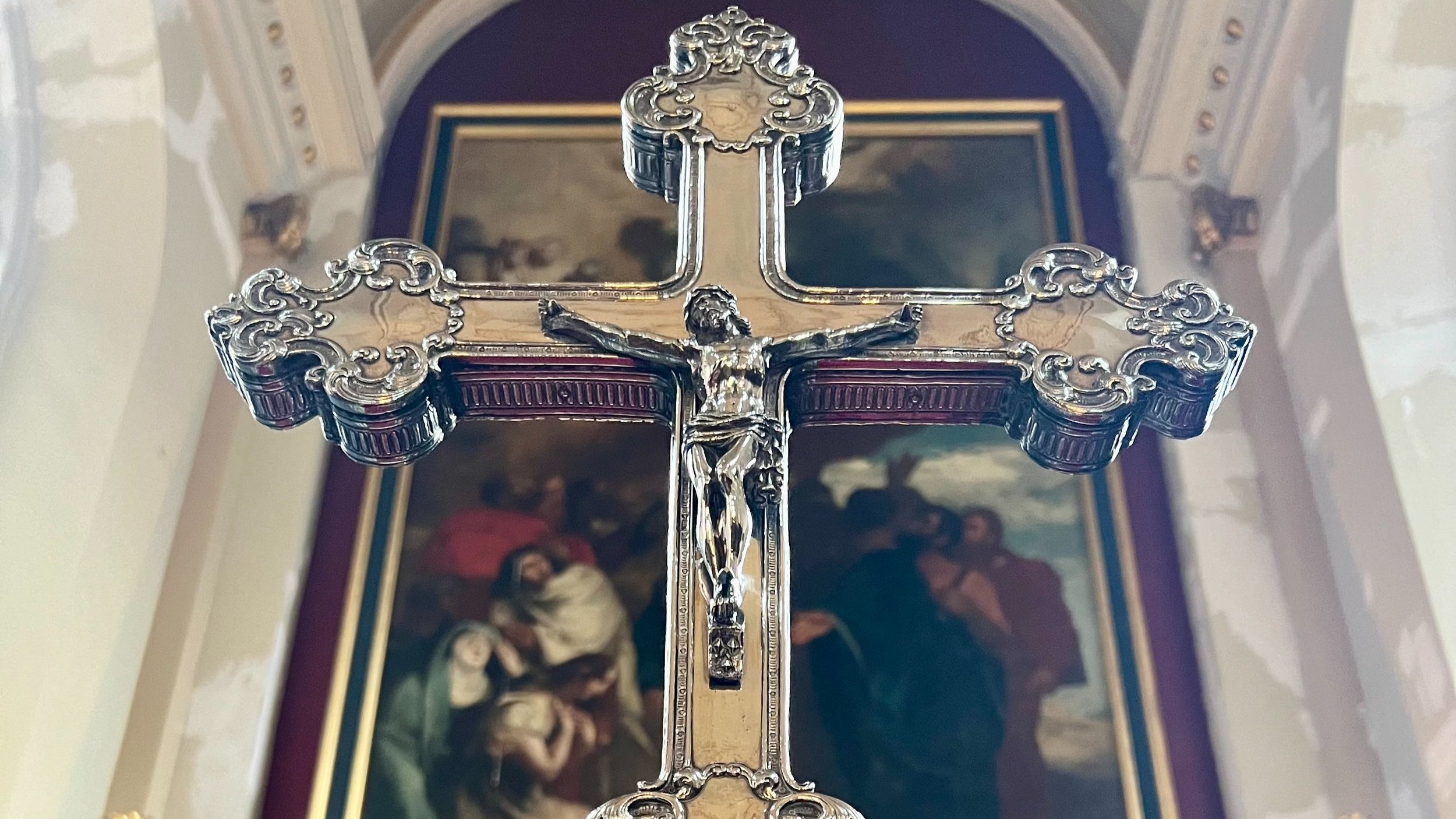
The Creeds neatly summarise the Christian Faith, which is the belief of the Church. Along with the Sacraments and Holy Scriptures, this Faith cannot be altered to suit fashion or human needs. As Christians, we believe that our Faith is true, just as Jesus himself said that he is the way, the truth, and the life. By its very nature, truth cannot change; what is true one moment cannot be false the next. Otherwise it would not have been true in the first place! And because the truth cannot change, neither can the Christian Faith.
Whilst the Christian Faith cannot alter how Christians relate to God sometimes can. Just as relationships evolve, not least in families, so too does the relationship between humanity and God. Views and attitudes change with the passage of time. That is why some things that might once have been deemed acceptable (or indeed unacceptable) are no more. The Church has had a long and rich tradition of recognising this, and the need on the one hand to adhere to the Faith, as it is taught by the Church, whilst also relating it to an ever changing world.
The Faith of the Church

Blessed Lord, who hast caused all holy Scriptures to be written for our learning; Grant that we may in such wise hear them, read, mark, learn, and inwardly digest them, that by patience and comfort of thy holy Word, we may embrace and ever hold fast the blessed hope of everlasting life, which thou hast given us in our Saviour Jesus Christ. Amen. (BCP Collect for the Second Sunday in Advent).
We know all about God's love for us because the History of God's relationship to Humanity is recorded in the Holy Scriptures. That is why Bible is often referred to as God's Word, which does not mean that God literally wrote it, but that its many authors were inspired by the Holy Spirit.
The Bible is not one book, but a collection of them (the word Bible comes from the Latin word for a Library) and was composed over hundreds of Years. It is in two parts. The Old Testament consists of 39 books, and was, and still is, the Jewish Scripture. (At the Reformation, seven books were removed from the Old Testament, the and placed in an appendix called the Apocrypha.) The New Testament, which was later added to the Old Testament by the Christian Church, consists of 27 books. It is centred upon the four Gospels of Matthew, Mark, Luke and John, which are accounts of the life, death and resurrection of Jesus.
Being a collection of works, it should come a no surprise that the Bible contains a wide range of writing; including history, poetry, law, prophecy, parable (stories with a spiritual meaning) and, especially in the New Testament, letters to believers. It even has its own hymn book: the book of Psalms. Passages from the Bible are read at every act of worship that takes place in the church.
The Bible is supremely important to Christians, since it gives us the grounding upon which our faith is based. But the Bible is not the sole foundation for it. Tradition is also important, since it was from tradition that much of the Bible came to be written in the first place. Most of the books in the Bible began life as spoken stories, that were handed down through the generations, as a tradition. and used in worship. In some cases, it was only later that the words actually came to be written down. The New Testament was finally agreed by the Church after the resurrection of Christ. Guided by the Holy Spirit, and grounded in Holy Scriptures, the Tradition of the Church seeks to maintain and interpret the Christian Faith.
The Bible

Services at St James follow the Book of Common Prayer, largely from its last authorised revision of 1662. We do this, not simply to showcase a museum piece, but as the resource for a living and pastoral liturgy in which people can and do engage. We believe that the stately prose naturally lends itself to the worship of Almighty God accompanied by some of the finest church music ever written. The Prayer Book appeals to people of all ages who we welcome into our fellowship at St James.
The Book of Common Prayer

Christians believe that God relates to us through a series of Sacraments. A Sacrament is, in the words of the Prayer Book Catechism, an outward physical sign of an inward and spiritual grace.
Because humans are physical beings, it is inevitable that we need help to encounter the spiritual nature of God. Part of this comes through reading the Bible. But that is also why the sacraments were given by God to the Church. Through physical signs, such as water in baptism, or bread and wine of the Eucharist, a spiritual reality is made present. However, that does not mean that when we celebrate the Sacraments we only imagine God, as we might do a loved one when we look at a photo of them. Nor does that imply that an event in the past is merely being commemorated. The Sacraments bring the real spiritual presence of God among those who are present. This presence is, in fact, far more real than our own precisely because God himself is more real.
The Church had traditionally numbered seven Sacraments divided into two Greater Sacraments and five lesser Sacraments. The most important or Greater Sacraments are: Eucharist or Holy Communion, and Baptism. These were considered necessary for salvation.
What are sometimes referred to as the Lesser Sacraments are: Confirmation, which is the laying on of hands by the bishop after a person has been baptized; Ordination of Bishops, Priests and Deacons; Marriage, the joining together in love of man and woman; Unction, the anointing of the sick with oil; and Confession of sins to a priest.
The Sacraments are important in our relationship with of God, since they are another way in which He communicates with us. Just as we encounter Him through the reading of the Bible, so too we continue to encounter the risen Jesus through the Sacraments.
Sacraments

Join us
We would love you to join us at a service. You are warmly welcome.

